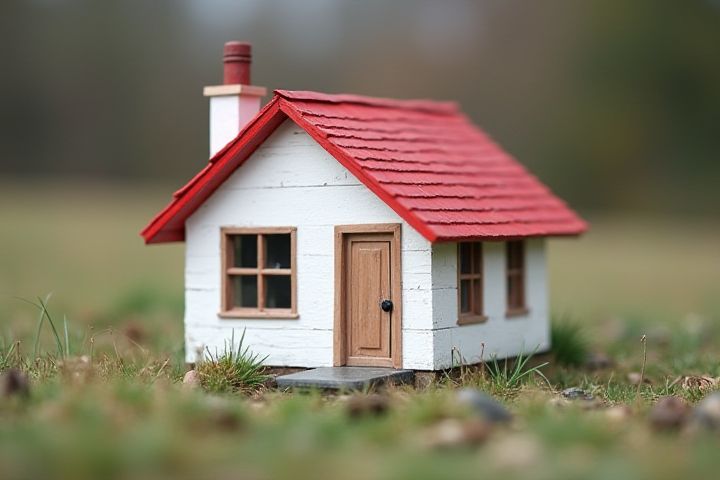
House insurance protects your home and personal belongings from various risks, including fire, theft, and natural disasters. By securing a policy, you safeguard your financial investment, as it covers the cost of repairs or replacements for damaged property. Liability coverage within a house insurance policy also shields you from legal expenses if someone is injured on your property. Additionally, some policies offer additional living expenses, ensuring you have a place to stay while your home is being repaired. Understanding your coverage options allows you to choose a plan that meets your unique needs and provides peace of mind.
Why Have House Insurance
Financial protection against damage
House insurance provides vital financial protection against various types of damage, ensuring that your investment remains secure. In 2022, the average homeowner's insurance policy cost around $1,500 per year, which covers damages from events like fire, theft, and natural disasters. Without insurance, you could face significant out-of-pocket expenses, potentially exceeding tens of thousands of dollars for repairs and replacements. By obtaining house insurance, you safeguard not only your property but also your financial stability in the face of unexpected events.
Coverage for natural disasters
House insurance increasingly emphasizes coverage for natural disasters due to the rising frequency and severity of such events. For example, in 2022, the United States experienced over 22 weather and climate disasters, each causing at least $1 billion in damage. Understanding the potential financial impact, homeowners can benefit from policies that include specific protections against floods, earthquakes, and wildfires. Your existing coverage might not fully protect you, making it essential to evaluate and adjust your policy according to regional risks and environmental changes.
Liability coverage for accidents
Liability coverage in house insurance is essential, as it protects you from financial responsibility in the event of accidents causing injury to others on your property. For instance, the average cost of a slip-and-fall claim can exceed $30,000, highlighting the significant financial impact of such incidents. Without adequate liability coverage, you could be liable for medical bills, legal fees, and damage awards, which can easily deplete your savings. With a standard policy offering coverage limits ranging from $100,000 to $500,000, having proper liability protection ensures peace of mind and long-term financial security.
Protection against theft
House insurance prioritizes protection against theft due to the significant financial loss that homeowners can incur. In fact, the average homeowner's insurance policy covers losses from theft, which accounted for approximately $16 billion in claims in 2019 alone. This safeguard ensures that valuable belongings, such as electronics and jewelry, are financially protected, allowing you to recover or replace stolen items efficiently. By including theft protection, insurance providers aim to minimize the emotional and economic impact of such crimes on policyholders.
Coverage for temporary living expenses
House insurance often includes coverage for temporary living expenses, also known as Loss of Use coverage, to protect homeowners from unexpected displacement due to disasters, such as fire or severe water damage. This coverage typically pays for essential needs, like housing, food, and basic living costs, ensuring that you can maintain your quality of life while your home is being repaired. Many policies cover additional living expenses for a limited period, often up to 24 months, with coverage limits varying by insurer. Such provisions are crucial for homeowners, offering financial support that alleviates the stress of navigating recovery after a loss.
Mortgage requirement compliance
Mortgage lenders typically require house insurance to protect their investment, given that the home serves as collateral for the loan. This insurance helps cover potential damages caused by events such as fire, theft, or natural disasters, ensuring that the property can be repaired or rebuilt. Without compliance to these insurance requirements, lenders may face financial loss, leading them to charge higher interest rates or impose additional fees on borrowers. By maintaining adequate house insurance, you not only protect your home but also comply with your mortgage obligations, securing your financial future.
Peace of mind
House insurance offers essential protection against financial losses from unexpected events like fires, theft, or natural disasters, providing you with peace of mind. With a typical policy costing around $1,000 annually in the U.S., it safeguards your property and belongings, covering damages that can escalate into thousands of dollars. Homeowners insurance often includes liability coverage, protecting you from legal expenses in case someone is injured on your property. Knowing that you're financially secure allows you to focus on enjoying your home without the constant worry of unforeseen incidents.
Coverage for personal belongings
House insurance provides crucial coverage for personal belongings, protecting valuable items such as electronics, furniture, and clothing against risks like theft, fire, and natural disasters. Most policies typically cover personal property up to 50-70% of the dwelling coverage, ensuring significant financial relief in case of loss. For optimal protection, consider scheduling high-value belongings, like jewelry or art, which often exceed standard policy limits. Investing in house insurance with comprehensive personal property coverage helps safeguard your assets effectively, offering peace of mind for homeowners.
Legal protection
House insurance often emphasizes legal protection to safeguard homeowners from the financial repercussions of legal disputes. Legal issues arising from property ownership, such as tenant evictions or boundary disputes, can lead to significant costs, sometimes exceeding thousands of dollars. With a legal protection clause, your policy can cover these expenses, ensuring peace of mind and financial security. Consequently, investing in house insurance that includes robust legal protection can be a smart decision for any homeowner looking to mitigate potential risks.
Cost-effective risk management
House insurance emphasizes cost-effective risk management to protect your assets while minimizing expenses. By analyzing potential risks, insurers can design tailored policies that prevent financial losses from natural disasters, theft, or liability claims. Engaging in proactive measures, such as installing security systems or maintaining the property, can significantly lower premiums, allowing you to save without compromising coverage. In 2023, homeowners who regularly evaluate their policies and claims history can ensure they maintain optimal protection at a reasonable cost.
